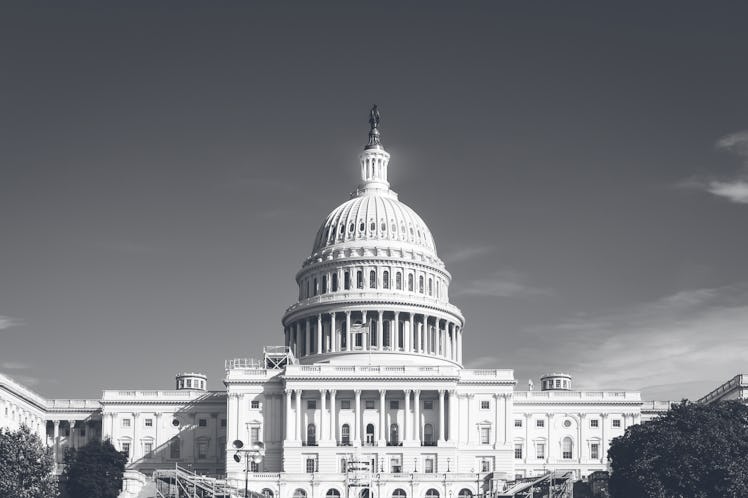The AAP Says Overturn Of Roe “Carries Grave Consequences” For Adolescent Patients
The American Academy of Pediatrics reaffirmed its support for “comprehensive, evidence-based reproductive health care services,” which includes access to safe abortion.

On Friday, June 24, the Supreme Court released its opinion on Dobbs v Jackson Women’s Health Organization, and, in doing so, overturned the precedence set by Roe v. Wade. The decision, which passed with a 6-3 decision, revoked the federally protected, constitutional right to abortion, which had been in place for nearly 50 years. This is the first time in history a constitutional right has been given to a group and then taken away. As the fallout of the ruling sets in — and there will be catastrophic fallout — the American Academy of Pediatrics (AAP) has warned about the impact this decision will have on teens.
Following the decision from the Supreme Court, the AAP issued a statement reaffirming its support for “comprehensive, evidence-based reproductive health care services” for adolescents. In it, the organization made it clear that comprehensive reproductive services include access to safe abortion and that removing that access puts adolescents in danger.
“This decision carries grave consequences for our adolescent patients,” the AAP’s statement read, “who already face many more barriers than adults in accessing comprehensive reproductive healthcare services and abortion care.”
The statement continued: “Today’s ruling means that in many places in the United States, this evidence-based care will be difficult or impossible to access, threatening the health and safety of our patients and jeopardizing the patient-physician relationship.”
“In the wake of this ruling, the AAP will continue to support our chapters as states consider policies affecting access to abortion care,” the statement concluded, adding, “pediatricians will continue to support our patients.”
In over a dozen states, trigger laws have gone or are going into effect, ensuring that abortions were immediately or nearly immediately illegal in those states. In all, at least 26 states are expected to outlaw abortion over the coming weeks. In many states already teens couldn’t get abortions without their parent’s consent — making the process impossible for many minors. Now, in many states, even that limited option will be taken entirely off the table.
More teens will be forced to carry their pregnancies to term. Teens who get pregnant and keep their pregnancies are more likely to drop out of school and struggle to find well-paying jobs, and their kids are also more likely to have negative social and health outcomes similar to their teen parents. Those kids are less likely to graduate college by age 25, are more likely to have a teen birth themselves, and are more likely to become incarcerated and live in poverty.
That’s not to mention the physical toll of pregnancy, a process that is more dangerous than abortion itself, and the negative, documented effects of having the freedom of choice to govern your own life taken away from you.
In another statement, the AAP confirmed it is updating two policy statements written by the AAP Committee on Adolescence surrounding care for pregnant adolescent patients.
“Everyone — including teenagers — deserves the right to confidential medical care that best supports their own needs and is informed by their physician’s expertise,” said Elise D. Berlan, MD, MPH, FAAP, co-author of both policy statements.
“Teenagers need accurate information about their reproductive health options, as well as other vital services like comprehensive sex education and contraception,” Berlan said. “AAP is concerned that attempts to limit abortion care will not only interfere with the adolescents’ trusting, confidential relationship with their physician, but could result in real psychological and physical harm.”
Although access to safe abortions will be protected in some states, the reality is that any delay — such as needing to secure funds and transportation to seek care out of state — will result in harm, Berlan warns.
“Any delays in healthcare can increase volatility within a family, limit pregnancy options, or cause someone to seek an unsafe abortion.”
This article was originally published on